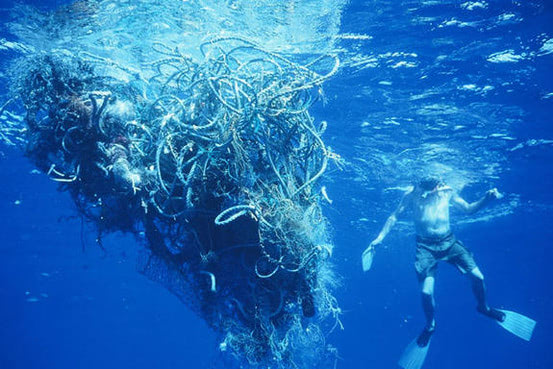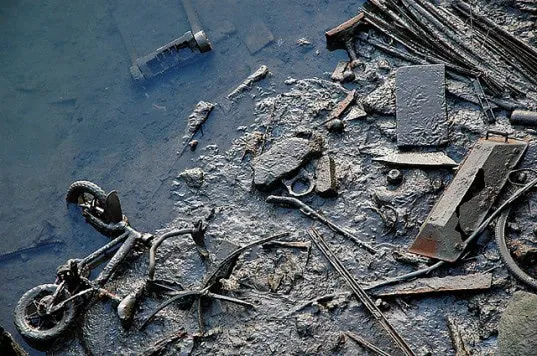We normally think of polluted water as the source of disease, not the cure for it. The Gowanus Canal in Brooklyn, affectionately known as the Super Fun Superfund, is one of the most polluted bodies of water in America. Most of the water is too low in oxygen to support plant or animal life. Worse still is the toxic mud at the bottom of the canal, rich in lead, dioxins, and mercury from decades of unchecked dumping from heavy industry.
The canal might run with poison, but it hasn't stopped enterprising New Yorkers, human and microbe alike, from making a living at the location. Humans built a party space, but the microorganisms got something better- potent new compounds that make them immune to the Gowanus's toxic soup. The bacteria and protozoans excrete antibiotic-like substances that may be a source of new drugs for humans.
Although the news is old, the lesson is timeless: Evolution will find a way (apologies to Jurassic Park).
As much as New Yorkers like to boast of their exceptionalism, these hardy Brooklyn organisms are likely not unique. Thanks to the wonders of natural selection, it's conceivable that any body of water that has been polluted for long enough will harbor extremophiles that have adapted to local conditions. If evolution solves problems that science and medicine currently cannot, we may stand to indirectly profit from our environmental mistakes.
 The Gowanus microbes echo more recent news about other microorganisms that vacuum up pollutants in the ocean. In the Sargasso sea, bacteria are eating plastic debris, while hungry microbes in the Gulf Coast broke down much of the oil spilled in the Deepwater Horizon disaster.
The Gowanus microbes echo more recent news about other microorganisms that vacuum up pollutants in the ocean. In the Sargasso sea, bacteria are eating plastic debris, while hungry microbes in the Gulf Coast broke down much of the oil spilled in the Deepwater Horizon disaster.
Oil and plastic are both composed of energy-rich organic compounds. Where there's unused energy, there's a strong incentive for something to evolve to eat it. This could be great news for the Great Pacific Garbage Patch and baby albatrosses. It could also be a terrible development for creatures that eat the microbes and their accumulated toxins, or for other oceanic microbes that are out-competed by the newcomers.
While there's no doubt that nature can clean up after us, there's no way to predict precisely how it will happen, and what the effect will be for the rest of environment. Evolution is not a cleaner that restores your home to its pristine state. It's a rogue remodeler that might leave you wondering if you have wrong address.


Comments (0)
Share your thoughts and join the technology debate!
No comments yet
Be the first to share your thoughts!